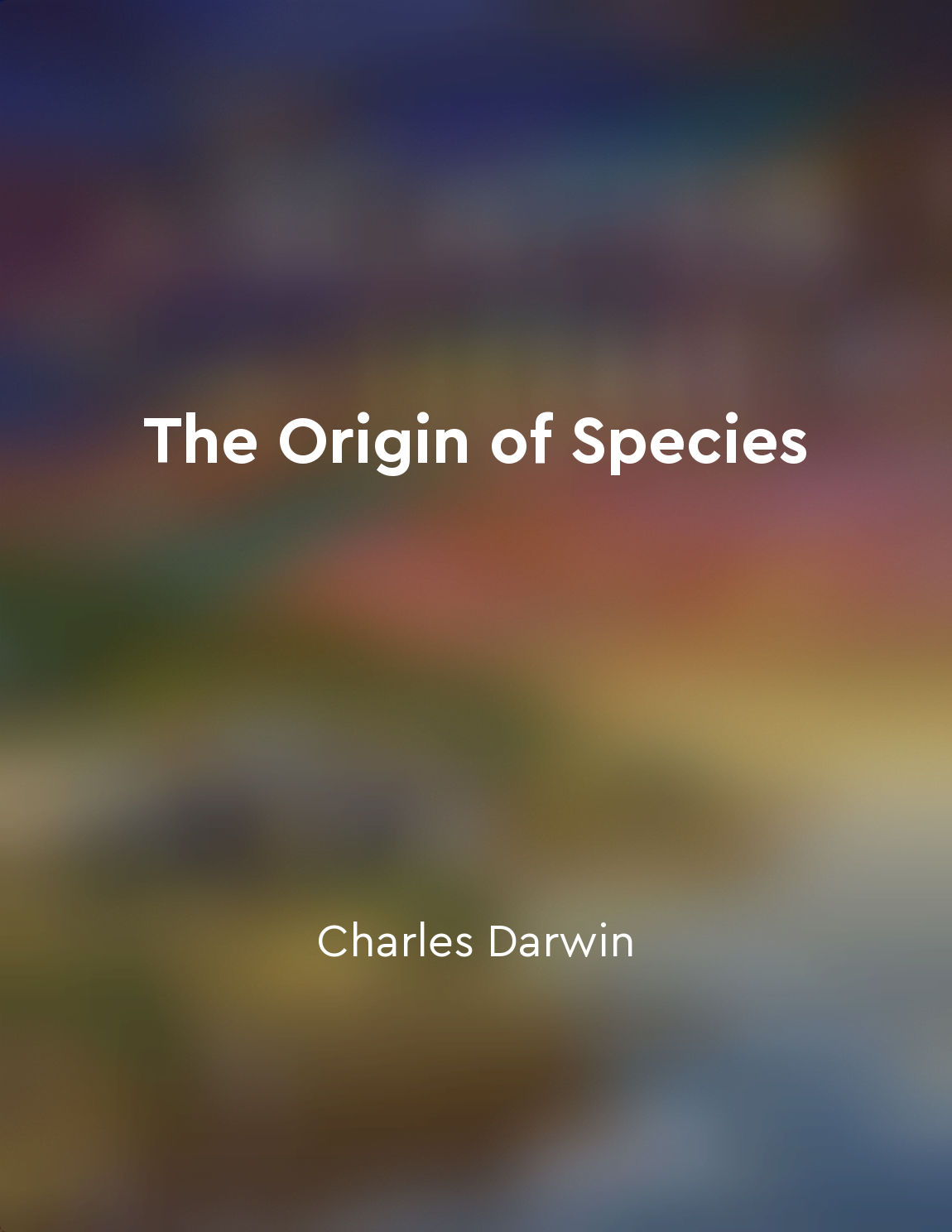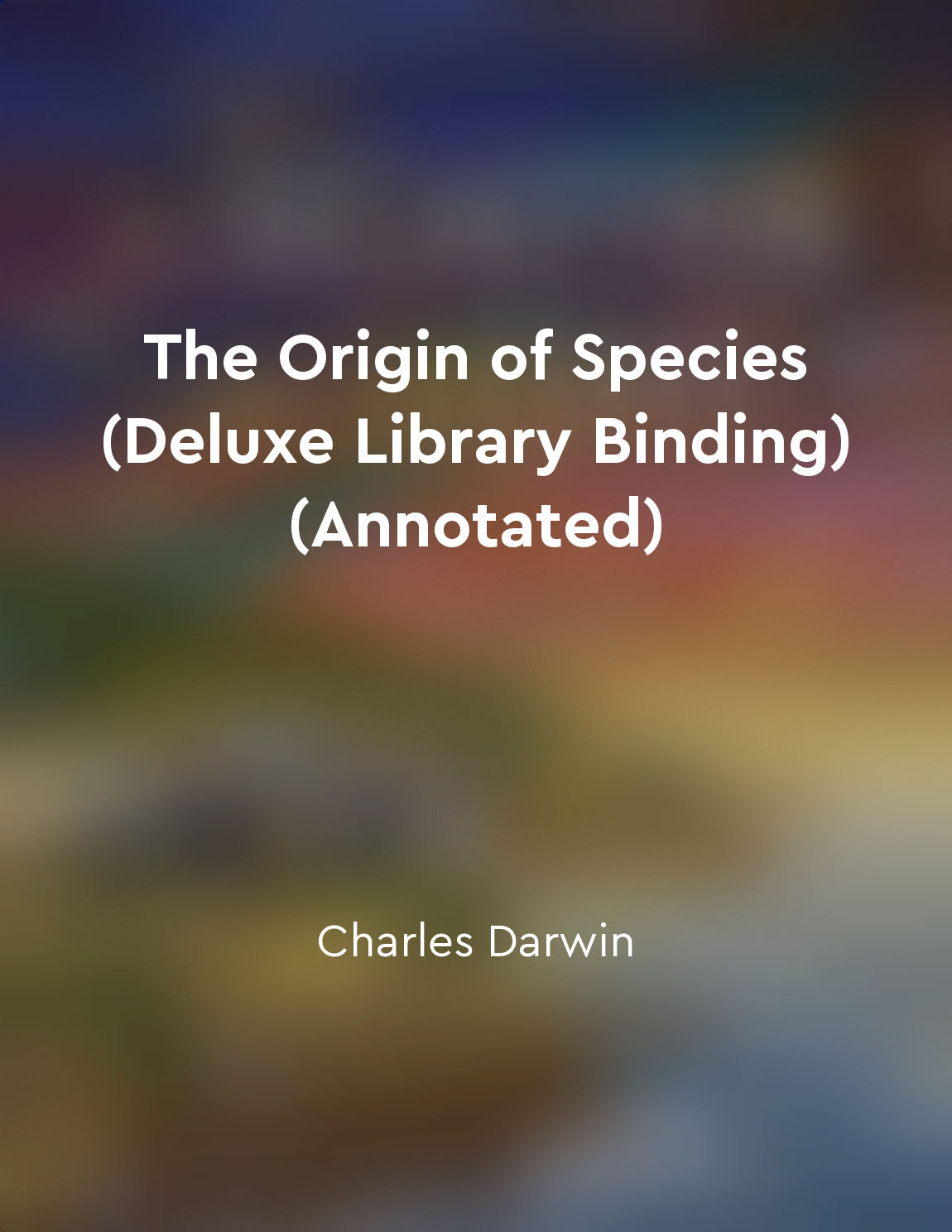Darwin proposed the theory of evolution by natural selection from "summary" of To Explain the World by Steven Weinberg
In the mid-nineteenth century, Charles Darwin put forth the groundbreaking idea that species evolve over time through a process known as natural selection. This theory revolutionized the way we think about the natural world and our place in it. Darwin's theory of evolution by natural selection challenged existing beliefs about the origins of species and provided a new framework for understanding the diversity of life on Earth. Darwin observed that within a population, there is variation in traits such as size, color, and behavior. He also noted that some of these variations are heritable, meaning they can be passed down from one generation to the next. Darwin proposed that individuals with advantageous traits are more likely to survive and reproduce, passing on these traits to their offspring. Over time, this process can lead to the accumulation of beneficial traits in a population, ultimately resulting in the formation of new species. Natural selection acts as a mechanism for evolutionary change, driving the process of adaptation in response to changing environmental conditions. Individuals that possess traits that increase their chances of survival and reproduction are more likely to pass on their genes to future generations. This results in the gradual change of populations over time, as advantageous traits become more common and less favorable traits are selected against. Darwin's theory of evolution by natural selection has stood the test of time and continues to be a central tenet of modern biology. It has been supported by a wealth of evidence from various fields, including genetics, paleontology, and comparative anatomy. Through the process of natural selection, species are able to adapt to their environment, leading to the incredible diversity of life that we see today.- Darwin's theory of evolution by natural selection represents a major milestone in our understanding of the natural world. It provides a powerful explanation for the origin and diversification of species, highlighting the role of natural selection in shaping the biological diversity we observe today.
Similar Posts

Experimentation is key
Experimentation is key in navigating complex and uncertain environments. The idea is simple: try something, see what happens, l...

Variation is key to diversity
The fact that variations are indispensable for the production of new forms and for representing distinct species is evident. Va...
Evolutionary theory provides insight into the origins of life
Evolutionary theory offers a powerful framework for understanding the origins of life on Earth. By examining the diversity of l...
Evolutionary theory is constantly evolving
The concept that evolutionary theory is constantly evolving is not a new one. From the moment Charles Darwin first proposed his...

Evolution is driven by genetic variation and environmental pressures
In the process of evolution, the driving forces are the variations in the genetic makeup of organisms and the environmental pre...
Embracing the truth of evolution enriches our understanding of the natural world
The truth of evolution is a profound concept that has the power to transform our understanding of the natural world. By accepti...

Hybridization can lead to speciation
Hybridization, the interbreeding of different species, can sometimes result in the formation of a new species. When two differe...

Infectious diseases can spread rapidly
Infectious diseases have the potential to spread rapidly, posing a significant threat to human populations. When a pathogen ent...

Adaptations reflect the functional fit between organisms and their environments
The relationship between organisms and their environments is a key aspect of the study of adaptation. It is through this relati...

